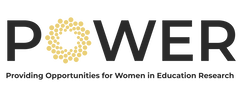|
In February 2019, members of the POWER Steering Committee met with Sharon Vaugh, Ph.D. We had a thoughtful conversation about research, writing, and how to say “no” sometimes. What is your advice for developing as a writer?
What are your tips for successful grant writing?
How do you envision a focused program of research?
How do you recommend young researchers find a more senior mentor?
Can you talk about work-life balance and how you’ve thought about that across your career?
How do you assess what opportunities to “yes” versus “no” to?
Many thanks to Sharon for sharing her advice and time with us; we are especially grateful for her honesty about managing anxieties and decision-making.
1 Comment
Monica Melby-Lervåg
5/20/2019 08:13:11 am
Thanks for this execellent advice. I will share it and keep it in mind myself as well
Reply
Leave a Reply. |
Categories
All
Archives
November 2023
|

